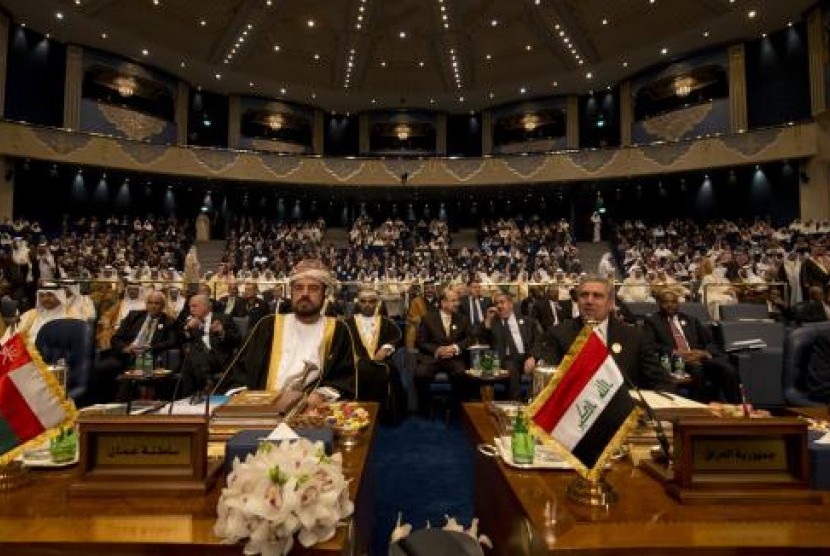REPUBLIKA.CO.ID, KUWAIT - Warning of "enormous" dangers, Kuwait urged fellow Arab leaders on Tuesday to resolve disputes complicating crises such as Syria's war and unrest in Egypt, but diplomats said tensions bubbled behind the scenes at an annual heads of state summit.
The gathering of the 22-member Arab League also heard an appeal from the UN peace mediator for Syria, Lakhdar Brahimi, for an end to the flow of arms to the combatants in the war, which has killed over 140,000 people and displaced millions. Brahimi did not identify the suppliers, but Saudi Arabia and Qatar are believed to be the main Arab funders of military assistance to rebels in Syria, while non-Arab Iran is the main regional power backing President Bashar al-Assad.
"The whole region is in danger" of being dragged into the conflict, Brahimi said, calling for renewed efforts to find a political settlement to the crisis, now in its fourth year.
Kuwait's emir, Sheikh Sabah al-Ahmad al-Sabah, urged Arab states to overcome rifts he said were blocking Arab initiatives. "The dangers around us are enormous and we will not move towards joint Arab action without our unity and without casting aside our differences," Sheikh Sabah, the summit host, said.
He named no country. But he was alluding to worsening disputes among Arab states over the political role of Islamists in the region, and over what many Gulf states regard as interference in their affairs by Shi'ite Muslim Iran, locked in a struggle for regional influence with Sunni rival Saudi Arabia.
Participants said there were differences over Qatari support for the outlawed Muslim Brotherhood in Egypt, how to deal with the Syria crisis and how to define "terrorism" in the region.
"Behind closed doors there is tension, but it's all under the table, no confrontation was made (in public)," one of the diplomats said. "There are clear divisions over what Saudis and the Qataris think."
In another sign of brewing discord, some delegates said it was possible the summit would take the rare step of not issuing a final communique, suggesting consensus was proving elusive.
The summit followed an unusual dispute within the Gulf Cooperation Council alliance of Gulf Arab states over Qatari support for Egypt's Muslim Brotherhood, and a spat between Iraq and Saudi Arabia over violence in Iraq's Anbar province.
Another diplomat said: "There were heated remarks about Egypt behind closed doors. Qatar has made comments about how things should happen in Egypt and Egypt says it is for them to decide."
The Gulf states' hereditary ruling families tend to keep their disputes private, meaning that a move by Saudi Arabia, the United Arab Emirates and Bahrain this month to recall their ambassadors from Qatar was highly sensitive.


